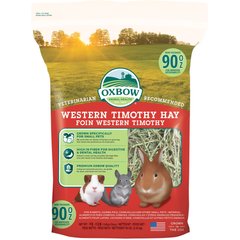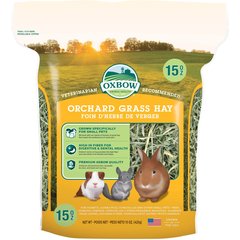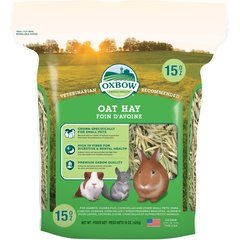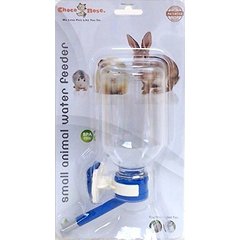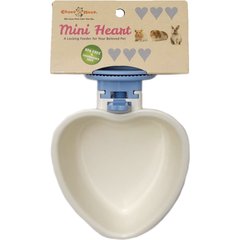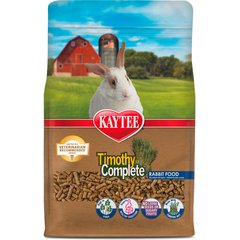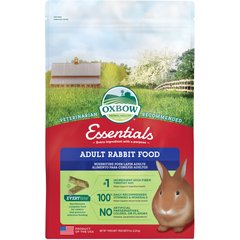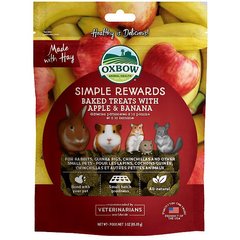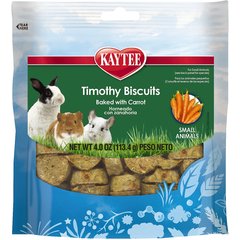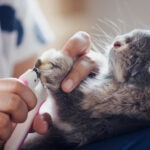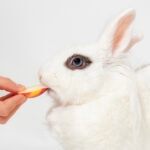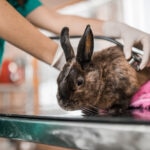What Do Rabbits Eat?
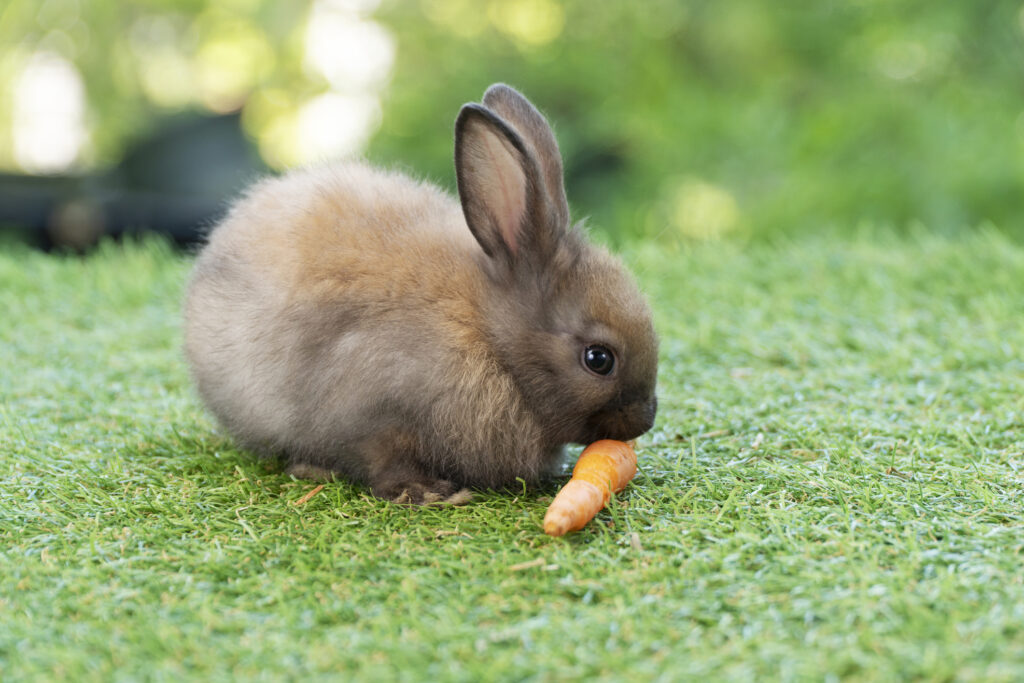
Photo by kaew6566/iStock/Getty Images Plus
Welcoming a rabbit into your family is an exciting adventure, and “What do rabbits eat?” is one of the first questions many new pet parents ask.
A healthy, balanced diet is essential for your bunny’s well-being, supporting both their long-term health and happiness. Rabbits have sensitive digestive systems, so providing the right nutrition is key to preventing illness and promoting a long life.
In this guide, you’ll learn the basics of bunny nutrition—from hay and leafy greens to pellets and treats—along with what to avoid and some products to make their feeding time easy and fun.
Key Takeaways
- Organic, pesticide-free grass hay should make up 80–90% of your rabbit’s diet
- Fresh leafy greens add variety and nutrients.
- Pellets and treats are OK in moderation—quality matters.
- To keep your bunny healthy, avoid sugary, starchy, or toxic foods.
Hay Is the Foundation of a Rabbit’s Diet
Hay isn’t just a snack—it’s the cornerstone of your rabbit’s health. Unlimited access to fresh hay is very important for multiple reasons.
First, hay promotes dental health by naturally wearing down a rabbit’s constantly growing teeth. Without enough hay, rabbits’ teeth will continue to grow and may contribute to the development of dental disease—a painful and complicated condition in rabbits.
Second, hay provides the high-fiber content needed to maintain a healthy digestive system and prevent gastrointestinal (GI) stasis, a dangerous condition where their gut (stomach and intestines) slows down or stops.
The best types of hay for rabbits include:
- Timothy hay. Ideal for adult rabbits, with balanced fiber and nutrients
- Orchard grass hay. A softer, sweeter option that can be mixed with Timothy for variety
- Oat hay. Great for texture variety and enrichment, though it may be higher in calories
Recommended Products
Water is important for all pets—especially rabbits, since they don’t get much from hay or pellets.
Fresh water should always be available, both in a bottle and in a heavy water dish that can’t be tipped over.
Recommended Products
These need to be cleaned properly and refilled daily.
Fresh Leafy Greens Make Great Daily Snacks
Leafy greens are an important supplement to your rabbit’s hay-centric diet.
Fresh greens provide moisture, vitamins, and minerals, which help with hydration and overall well-being. Greens also add enrichment and variety to your bunny’s meals.
Safe, daily greens include:
- Romaine lettuce: Crunchy and hydrating.
- Parsley: Nutrient-rich and flavorful.
- Cilantro: A fragrant herb that many rabbits love.
- Dandelion greens: Packed with calcium and antioxidants.
Along with the hydration benefit of offering fresh greens, these veggies are an excellent source of vitamins A, B, C, and K. They also provide important soluble and insoluble fiber, as well as trace minerals such as iron, manganese, copper, and zinc.
Rotate the types of greens you offer, to avoid digestive upset and to introduce different nutrients. Feed approximately 1 cup divided over the course of the day if your rabbit weighs 3 pounds or more.
While there are benefits to incorporating greens into your rabbit’s diet, certain vegetables should NOT be fed to rabbits, such as iceberg lettuce, rhubarb, raw onions, leeks, or garlic.
Pellets Are Supplemental, Not a Staple
Pellets can be a good source of vitamins and minerals, but they should never replace a rabbit’s hay.
Many commercially available rabbit foods contain seeds, nuts, or sugary pieces that can lead to obesity or digestive issues. Choose high-fiber pellets specifically formulated for adult rabbits.
Aim for about 1/4 cup of pellets daily per 5 pounds of body weight for adult rabbits. Always adjust amounts based on your rabbit’s weight and activity level.
Recommended Products
Always consult your veterinarian before making any changes to your pet’s diet.
Offer Safe Fruits and Veggies as an Occasional Treat
Fruits and non-leafy vegetables should only be fed in moderation because of their sugar and starch content. These foods are best reserved for special occasions, bonding time, or as training rewards.
Bunny-safe treats include:
- Carrot tops: Nutrient-dense without the high sugar content of the root.
- Apple slices (skin is OK, but no seeds!): Sweet and crunchy.
- Strawberries: A bunny favorite, packed with vitamin C.
All fruits and veggies should be properly cleaned before they’re offered to your pet. Organic is the way to go for all produce.
You can also give celery, bell peppers, blueberries, papaya, pineapple, and melons to your rabbit.
Stick to 1–2 tablespoons of fruit or veggie treat per day, depending on your rabbit’s size. It’s best to rotate these fruits and veggies to stimulate nutritional enrichment.
What Not To Feed Your Rabbit
Certain foods are toxic to rabbits, while others can cause severe digestive issues.
Do not feed your rabbit:
- Iceberg lettuce: Contains lactucarium, which can cause diarrhea
- Bread, pasta, and crackers: High in carbohydrates and lacking in fiber; can cause bloating
- Chocolate, dairy, and meat: Rabbits are herbivores; these foods can be fatal.
- Beans and legumes: Can cause gas and bloating
- Sugary snacks (such as cookies, candy): Disrupt gut bacteria and can lead to obesity and bloat
These foods can lead to gastrointestinal problems including diarrhea, GI stasis/colic, bloating, and other serious consequences. GI stasis is a life-threatening medical emergency requiring immediate veterinary attention. Symptoms include a decreased or lack of appetite, change in fecal output including small or no fecal pellets, bloating, and lethargy.
Sample Daily Feeding Schedule for Rabbits
A consistent feeding schedule helps regulate your rabbit’s digestion and reduces stress.
Let’s look at a sample of the ideal feeding schedule for rabbits.
Morning:
- Refill hay (should be available 24/7)
- Offer a portion of daily greens
- Water bottle and water bowl clean and refill
Afternoon:
- Small portion of pellets (1/4 cup per 5 pounds of body weight)
- More hay if needed
Evening:
- Another serving of greens (of the total of 1 cup divided 2–3x over the course of the day)
- One small treat (fruit or veggie)
- Clean up uneaten produce
Best Treats for Rabbits
Treats are great for bonding, training, and enrichment—just keep them healthy and limited. Choose treats that are made with natural ingredients and are free from added sugar and artificial colors, like Oxbow Simple Rewards Oven Baked with Apple & Banana Small Animal Treats or Kaytee Baked Carrot Timothy Biscuit Small Animal Treats.
Recommended Products
Feeding your rabbit doesn’t have to be complicated. With a little knowledge and the right products, you’ll have a happy, healthy bunny who’s always excited for mealtime!
FAQs About What Rabbits Eat
What do I feed a bunny daily?
A balanced diet of unlimited hay; 1 cup of leafy greens per 2 pounds of body weight, ideally divided into 2 or 3 small portions over the course of the day; a small portion of high-quality pellets (1/4 cup per 5 pounds of bunny); and the occasional treat is recommended.
What do bunnies eat in the wild?
Wild rabbits eat grass, weeds, clover, twigs, and leafy plants. Their diet is naturally high in fiber and low in sugar.
Can I feed my rabbit lettuce?
Yes, but stick to dark, leafy types like romaine, red leaf, or green leaf. Avoid iceberg lettuce because it has low nutritional value and high-water content, and it can cause diarrhea.
How much water should my rabbit drink?
Rabbits always need access to fresh water. A clean, full water bottle and sturdy water bowl should always be available—and should be cleaned and refilled daily.
Attributions
This article was created with assistance from AI tools. The content has been reviewed for accuracy and edited by a human.
